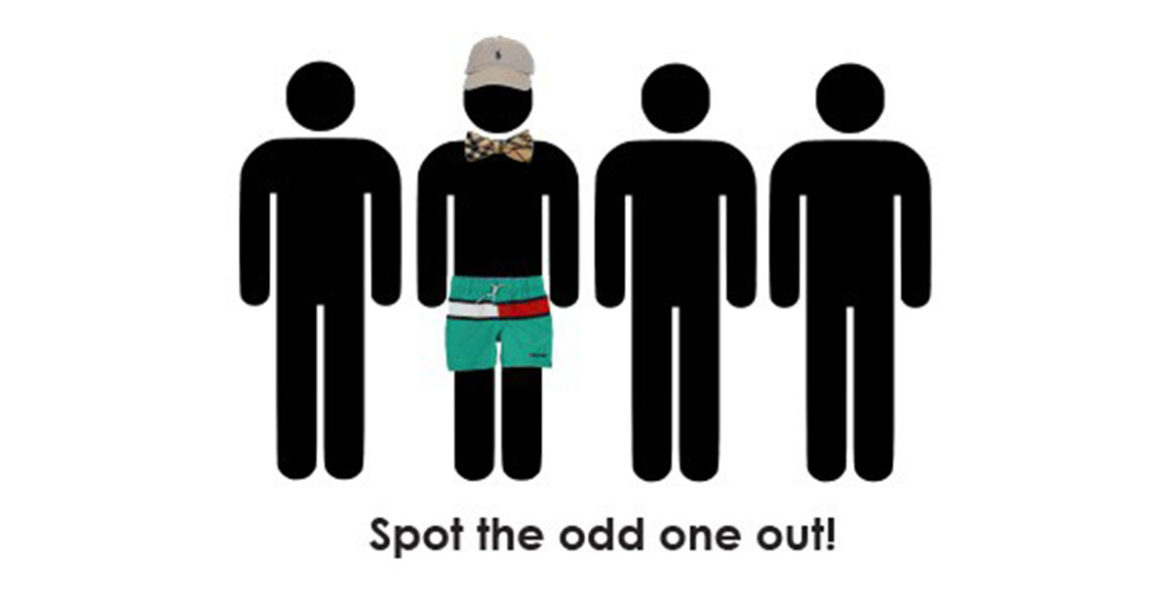Nowadays, it is very common to see children dressed from tip to toe in designer clothes, literally from hair bands to shoes. Burberry, Dior, Kenzo and Gucci are now part of many children’s wardrobes. The question is: Why do many people insist on showing off the logo or the print? Does this necessarily symbolize high status? Is it really worth it?
My grandmother, may she rest in peace, used to always say an Egyptian proverb reminding me not to exaggerate when buying clothes for my children, “aklohom tegara wa lebsohom khosara”, meaning “Their food is a profitable trade, but their clothes are a loss”. Children outgrow their clothes fairly quickly. In early childhood, clothes last for only one season maximum. If you spend a fortune on clothes, there would definitely be other benefits forgone. You could use this money for something else that would add more value to your child’s life and future. This is the case even if one possesses extreme wealth. Nevertheless, some people will pay an arm and a leg to shower their children in signé clothes. “If I could afford it, I would even buy my son signature underwear. To me, this is a priority”, my friend Noha once told me. “People who think this way are never relaxed. I feel their life is catastrophic, as they are always in competition feeling that they constantly need to catch up”, says Rania, “my mother used to buy designer clothes for my kids. However, I never do this, despite the fact that it’s a status symbol”. With the zeal of the first child’s birth, some people try to get the best for their newborn. However, after some time, they realize that this is a mere exaggeration. Mona explains, “I used to even get Burberry PJs, but later on, I came to understand that this is too much. I stopped completely and I managed to convince my husband as well, although he has always been a big fan of designer clothes. In our community, nobody judges me for what my children wear…and if someone would judge me because of appearance, then I don’t need this person in my life.”
Brand perception differs from one person to another and is very relative. What someone might consider a high-end brand is to somebody else just normal in terms of value and status. This depends on the amount of wealth one has as well as on the extent of the role of brands in one’s life. “ To me, for kids clothes, Zara and Next constitute a good brand”, states Aida. On the other hand, Mona defines signature clothes as Gucci, Burberry, Dior and the like. To her Ralph Lauren and Tommy Hilfiger are not cheap, however, and hence her children’s wardrobe is comprised of those two brands. “I used to buy my children a lot of branded clothes like Ralph Lauren, Boss and Burberry, now I buy fewer items”, points out Bothaina.
Buying expensive clothes is a matter of personal preference. It is acceptable as long as it is not exaggerated. The problem is, however, that by making our children constantly exposed to such brands, we indirectly teach them to profile people according to what they wear. Anybody who does not have the appropriate logo on his shirt is simply not classy. It is evident that children would not truly care about logos unless they were taught by their parents or through peer pressure. It is sad that manners and upbringing do not constitute the parameters by which people are judged anymore, despite the fact that this is what truly matters.
Appearance does matter. Nevertheless, it should not be given too much focus. My son was playing a logo identification game with one of his friends on the iPad. His friend laughed at him, because he mistook the crocodile for being crocs instead of Lacoste. Should ten-year-olds be aware of each and every brand? We sometimes tend to forget that children are often playing outside, getting dirty, and sometimes even return home with a hole at the knee of their pants while playing. Is it really worth it to spend all that money on such brands? In addition, children can easily become accustomed to deriving their self-confidence from what they wear. Accordingly, if at any time they couldn’t afford such a luxury, they would certainly feel insecure and that there is something missing in their lives. We would also be teaching our children that those expensive clothes are the norm and accordingly, they would not appreciate the value of what they possess. “My heart really aches when my son constantly throws away his Burberry leather jacket on the floor”, says Sherine, whose son is a tall man now, who grew up wearing nothing but expensive brands. Therefore, one should be wise when selecting clothes for children and concentrate on the messages and values conveyed here.

